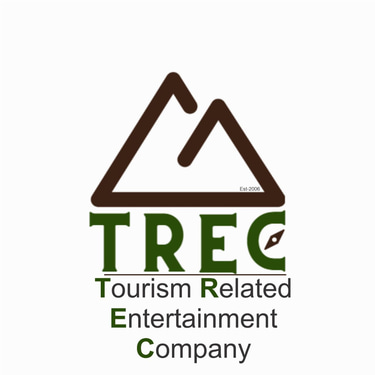Data-Driven Resort Marketing Strategies
Discover how to navigate today's competitive hospitality landscape with data-driven resort marketing strategies. Learn to optimize your marketing campaigns and drive substantial revenue growth by targeting potential guests effectively and enhancing their customer journey.


Understanding the Modern Resort Guest
The contemporary traveller’s decision-making process is increasingly sophisticated, involving multiple touchpoints across various digital platforms. Resort marketers must understand that guests typically spend 13-17 touchpoints researching and planning their vacation before making a booking decision. This digital journey presents numerous opportunities to collect valuable data and influence booking decisions.
The Foundation: Building a Robust Data Infrastructure
Successful data-driven marketing begins with establishing a comprehensive data collection and analysis framework. Resort properties need to integrate various data sources, including:
Property Management Systems (PMS): These systems capture essential guest information, booking patterns, and revenue data, forming the backbone of any data-driven strategy.
Customer Relationship Management (CRM) platforms: Advanced CRM systems help track guest interactions, preferences, and behaviour across multiple channels, enabling personalized marketing approaches.
Website Analytics: Tools like Google Analytics provide crucial insights into user behaviour, helping optimize the digital booking experience and identify potential roadblocks in the conversion funnel.
Leveraging Predictive Analytics for Better Targeting
Modern marketing success relies heavily on predictive analytics to identify high-value guest segments and optimize marketing spend. By analysing historical booking data, guest behaviour patterns, and market trends, resorts can develop sophisticated targeting strategies that maximize ROI.
Resorts can implement machine learning algorithms to predict:
- Peak booking periods for different guest segments
- Optimal pricing strategies based on demand forecasting
- Guest lifetime value and propensity to book
- Most effective marketing channels for specific demographics
Personalization: The Key to Higher Conversion Rates
Data-driven personalization has shown to increase marketing ROI by 20-30% for resort properties. By analysing guest data, resorts can create highly targeted marketing campaigns that resonate with specific audience segments. This includes:
Email Marketing Customization: Utilize guest history and preferences to create personalized email campaigns that highlight relevant amenities, activities, and special offers.
Dynamic Website Content: Implement content personalization based on user behaviour, geographic location, and previous interactions with your brand.
Mobile-First Marketing Strategies
With over 70% of travel research now conducted on mobile devices, optimizing for mobile engagement is crucial. Data shows that mobile-optimized marketing campaigns generate 30% higher conversion rates compared to desktop-only approaches.
Implement progressive web apps (PWAs) for faster loading times and better user experience. Focus on mobile-specific content formats and ensure all booking processes are streamlined for mobile users.
The Power of Marketing Automation
Marketing automation platforms, when properly configured with data-driven insights, can significantly improve campaign efficiency and ROI. These systems help resorts:
Create triggered email campaigns based on specific user actions or milestones
Automate social media posting during peak engagement times
Generate personalized offers based on guest behaviour and preferences
Track and optimize campaign performance in real-time
Measuring and Optimizing Marketing ROI
Implementing comprehensive tracking and attribution systems is essential for measuring marketing ROI accurately. Key metrics to monitor include:
Cost per Acquisition (CPA): Track the total cost of acquiring each booking through different marketing channels.
Customer Lifetime Value (CLV): Calculate the total value of a guest over their entire relationship with your resort.


Advanced SEO Strategies for Resort Properties
Search engine optimization remains a crucial component of data-driven marketing. Focus on:
Local SEO: Optimize for location-based searches and ensure proper Google My Business optimization.
Content Strategy: Create high-quality, relevant content that targets specific long-tail keywords related to resort experiences and amenities.
Technical SEO: Ensure your website meets all technical SEO requirements, including mobile optimization, page speed, and structured data implementation.
Also read this blog for best SEO practice: SEO Techniques
Leveraging User-Generated Content (UGC)
Data shows that user-generated content (UGC) can increase conversion rates by up to 161% for resort properties. Implement strategies to:
Encourage guests to share their experiences on social media
Showcase authentic guest reviews and testimonials
Create branded hashtags for better content tracking and engagement
Practice Self-Generated Content (SGC)
In today's digital landscape, self-generated content (SGC) has become a cornerstone of successful resort marketing strategies. This authentic, in-house content creation approach not only enhances brand identity but also significantly impacts guest engagement and booking rates.
Original visual content, including high-quality photography and videos of resort amenities, rooms, dining experiences, and local attractions, serves as a powerful tool for capturing potential guests' attention. When resorts create their own content, they maintain complete control over their brand narrative and can showcase their unique selling propositions more effectively than through third-party content.
Social media platforms have become crucial channels for resort marketing, where self-generated content drives higher engagement rates. Behind-the-scenes glimpses, staff stories, guest experiences, and seasonal updates create an authentic connection with potential visitors. This approach helps in building trust and credibility, as travellers increasingly seek genuine experiences rather than polished commercial presentations.
User-generated content (UGC) can be effectively integrated with self-generated content to create a comprehensive marketing strategy. By encouraging guests to share their experiences and incorporating their content alongside professional in-house material, resorts can create a more diverse and relatable content portfolio.
Regular blog posts featuring local insights, event coverage, and destination guides not only provide value to potential guests but also improve search engine visibility. Creating detailed, informative content about local attractions, activities, and seasonal events positions the resort as a knowledgeable local authority.
Video content, particularly virtual tours and experience previews, has become increasingly important in the decision-making process for potential guests. Self-produced video content allows resorts to highlight their unique features and create immersive experiences that resonate with target audiences.
To know more about UGC and SGC, read this blog: The power of UGC and SGC


Future-Proofing Your Marketing Strategy
Stay ahead of the curve by incorporating emerging technologies and trends:
Voice Search Optimization: With the rising popularity of voice-activated devices, optimize content for voice search queries.
Virtual Reality Tours: Implement virtual property tours to provide immersive experiences for potential guests.
AI-Powered Chatbots: Use artificial intelligence to provide instant responses to guest inquiries and improve conversion rates.
To know more about the impotence of VR, read this blog: VR practice for Resorts
Conclusion: The Path to Sustainable Growth
Data-driven marketing is not just about implementing new technologies – it's about creating a culture of continuous improvement and optimization. By consistently analysing performance data, testing new approaches, and refining strategies, resort properties can achieve sustainable growth in an increasingly competitive market.
Remember that successful data-driven marketing requires ongoing commitment and investment in both technology and expertise. Start with a solid foundation, gradually implement more sophisticated strategies, and always keep the guest experience at the centre of your marketing efforts.
Some useful blogs:
Get in touch
Address
TREC
Sirsi, KA 581402
